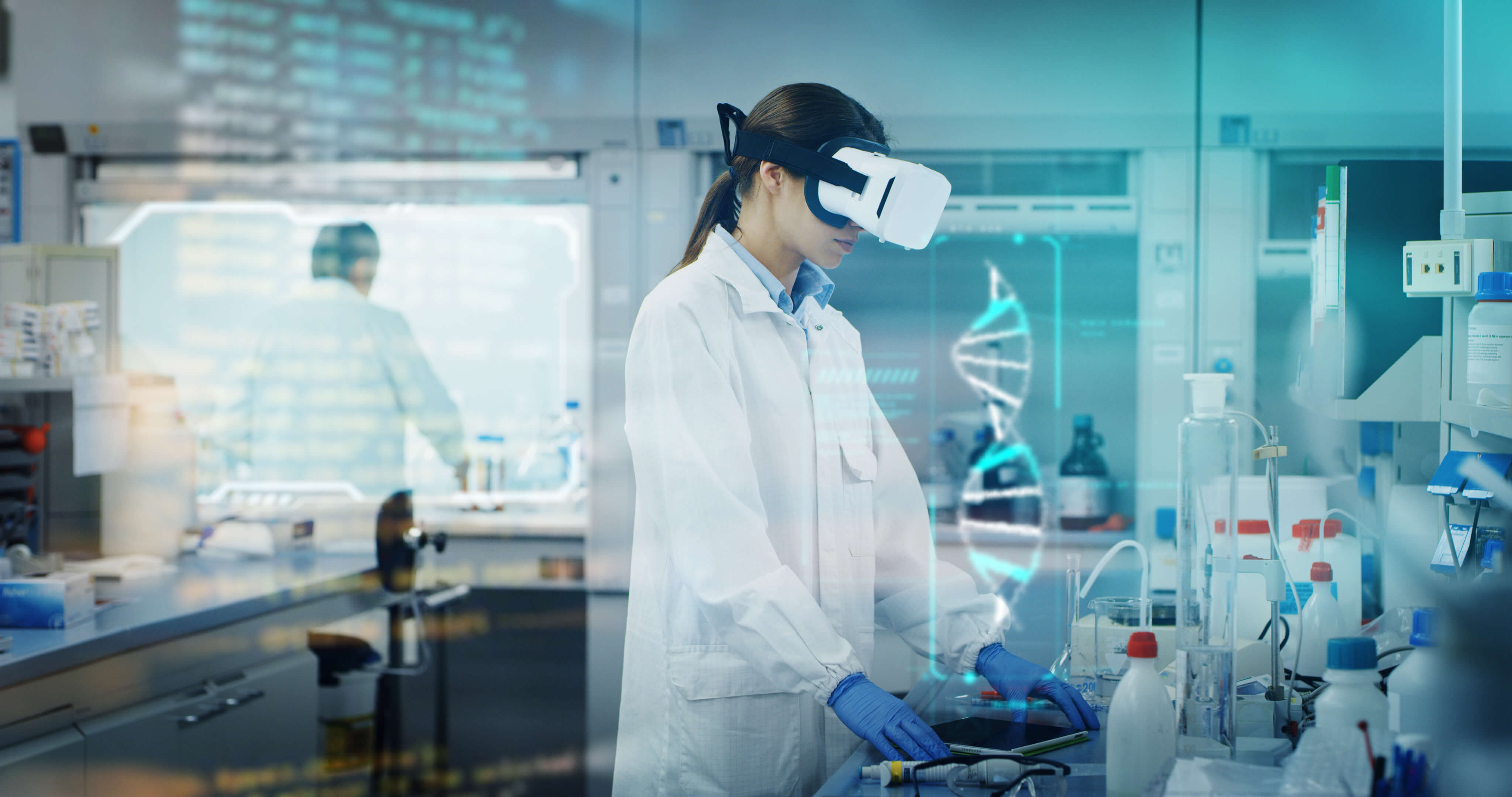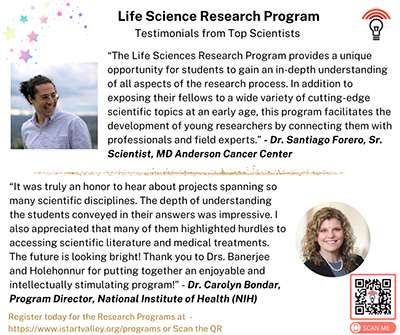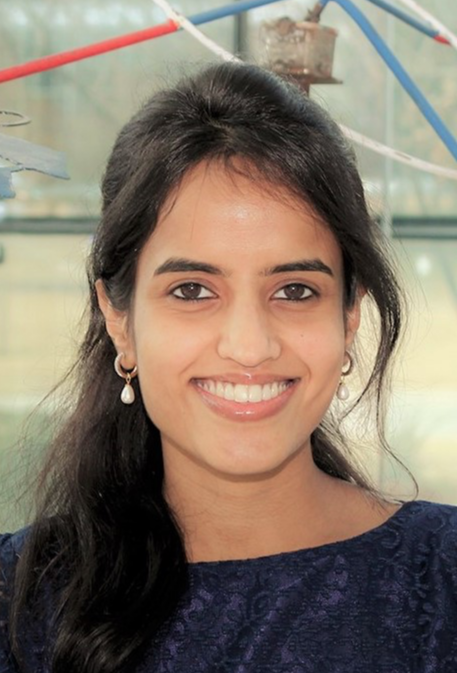Life science Research Program
Presented by Dr. Anwesha Banerjee and Dr. Roopa Holehonnur
January 25th to April 12th, 2025, Every Saturday, 1.00 - 2.00 PM Central

In this unparalleled course, students are offered an exclusive chance to delve into the intricacies of research without the constraints of a traditional laboratory setting. This transformative experience arms them with indispensable tools and insights, propelling them head and shoulders above their peers in both college applications and coveted research internships. Empowered to select a research question, students are meticulously guided by our team of seasoned scientists, navigating the labyrinth of hypothesis formulation, experiment design, rigorous data analysis, and the nuanced art of data interpretation and presentation. Upon completing this course, students emerge not just with knowledge but with a profound comprehension of life sciences research, poised to apply their honed analytical skills to unravelling intricate scientific enigmas and pioneering groundbreaking solutions.
Outcomes
Empower yourself with cutting-edge techniques, delve into groundbreaking discoveries, meticulously craft a comprehensive research blueprint, and eloquently present your findings through conference-style oral and written reports.
This transformative internship promises not just knowledge, but the invaluable ability to stand out on your college application as a research-ready individual. It serves as more than an experience; it's a virtual journey that enhances your medical school application, marking you as a candidate of exceptional caliber."
Who should Attend
- High schoolers or undergraduates interested in pursuing a research career (Graduate school/ PhD.)
- Pre- medical students
- A research enthusiast who wants to expand their knowledge and skills on how to solve scientific problems.
Curriculum
- Overview of research process: from problem to publication - 1 week
- Literature review and citations - 2 weeks
- Common techniques used in biology labs - 2 weeks.
- Molecular biology
- Animal behaviour
- Physiology
- Bioinformatics
- Data collection and analysis (based on techniques) - 2 weeks.
- Sample gel DNA/RNA gel and work through analysis
- Behaviour data
- Body weight interpretation
- Analysis of protein and gene sequences
- Choose a question: discuss with class -2 weeks
- Cancer
- Neuroscience
- Metabolic diseases
- Autoimmune diseases
- Scientific writing and communication - 2 week
- Posters
- Presentations
- Scientific Abstracts and Manuscripts
- Manuscript
- Abstract
- Poster presentation: discuss what's expected - 1 week.
- Hypothesis
- Methods
- Expected results.
- Discussion
- Citations
- Competition: poster presentation and abstract submission
How research experience can help High School and College Students
Engaging in research experience in life sciences can be immensely beneficial for both high school and college students. Here are some ways it can help:
High School Students
- Early Exposure: Program provides early exposure to the scientific research process. Understanding research methodologies and techniques at a young age is invaluable.
- College Applications: Participation in research projects enhances college applications. Admissions officers often look for students with unique experiences and skills, and research stands out.
- Critical Thinking: Program hones critical thinking and problem-solving skills. Research projects often involve analysing data, troubleshooting experiments, and adapting to unexpected results.
- Mentorship: Learning from experienced scientists fosters a passion for the subject and helps in understanding the real-world applications of what is learned in the classroom.
- Networking: It provides opportunities to network with professionals in the field, creating connections that can be invaluable for future endeavours.
- Confidence: Successfully completing a research project instils confidence in one's abilities, encouraging students to pursue challenging academic and career paths.
- Publication Opportunities: In many cases, research can lead to publications in scientific journals. Having a publication as a Highschooler greatly strengthens the college application.
College Students
- Graduate School Opportunities: For students aspiring to attend graduate school, research experience is almost a prerequisite. Many graduate programs, especially in the sciences, prefer candidates with substantial research background.
- Deepening Knowledge: It deepens understanding of specific topics. Engaging in research allows students to delve deeper into areas of interest, beyond what is covered in regular coursework.
- Skills Development: Research hones various skills such as data analysis, laboratory techniques, scientific writing, and presentation skills. These skills are transferable to many careers.
- Career Preparation: For students considering a career in research or academia, early research experience is crucial. It provides insight into the realities of the field and helps in making informed career choices.
- Publication Opportunities: In many cases, college research can lead to publications in scientific journals. Having a publication as an undergraduate greatly strengthens a resume or a graduate school application.
- Problem-Solving: Research often involves dealing with ambiguity and solving unstructured problems. These skills are applicable not just in academia, but also in various industries.
- Collaboration: Working on research projects often involves collaboration with peers and professors. Learning to work in a team is a vital skill in most professions.
- Innovation and Entrepreneurship: Research experience can lead to innovative ideas and solutions. It's the foundation for entrepreneurial ventures, especially in biotechnology and related fields.
In summary, research experience in life sciences provides a holistic education, enhancing not only subject-specific knowledge but also a wide array of skills essential for personal and professional growth. It opens doors to numerous opportunities and helps students make meaningful contributions to the scientific community.
Schedule
From January 25th to April 12th, 2025, every Saturday from 1.00 – 2.00 PM CST. Program is delivered online using advanced collaboration tools and online web conference platforms.
Fees
Total fees for the program is $800, payable in 2 instalments of $500 and $300 after the first 6 sessions.
Testimonials from Industry Leaders

Meet the Instructor
 Anwesha Banerjee, PhD, of Brisbane, California, is a neuroscientist for Annexon Bioscience. In her role, she leads research programs with the mission to develop cure for neurological disorders. Banerjee holds a doctorate degree in neuroscience from the University of Texas at Dallas. While earning her doctorate, she was awarded the Women in Bio Behavioral Scholarship, and in 2017 she became a Myotonic Dystrophy Foundation Fellow to advance knowledge in the field of Myotonic Dystrophy. She has been the recipient of Women in bio behavioral scholarship in 2013 by UTD and has been awarded with a fellowship by Myotonic Dystrophy Foundation/ Wyck Foundation in 2017 to conduct her own independent research in finding a cure for Myotonic Dystrophy. She has authored multiple publications in the area of autism, fragile X and myotonic dystrophy.
Dr. Banerjee is the Executive Director of iStart Valley, where she helps expand the Human Capital Accelerator programs, geared toward helping individuals transition their careers to new and emerging industries. Her leadership helped start several new educational programs that are now delivered to hundreds of middle and high school children across North America in a virtual setting.
She has been an active member of Toastmasters International for over ten years. What started as a sidestep for professional development has now become her passion. She is a Distinguished Toastmaster, which is the highest level of educational goal one can achieve in the organization. She currently serves as an elected member of the Board of Directors where she provides strategic direction to help the organization that comprises of >270,000 members in 148 countries. An avid public speaker, she is well versed in facilitation, communication and leadership skills, winning various awards & commendations for her speeches and presentations.
Anwesha Banerjee, PhD, of Brisbane, California, is a neuroscientist for Annexon Bioscience. In her role, she leads research programs with the mission to develop cure for neurological disorders. Banerjee holds a doctorate degree in neuroscience from the University of Texas at Dallas. While earning her doctorate, she was awarded the Women in Bio Behavioral Scholarship, and in 2017 she became a Myotonic Dystrophy Foundation Fellow to advance knowledge in the field of Myotonic Dystrophy. She has been the recipient of Women in bio behavioral scholarship in 2013 by UTD and has been awarded with a fellowship by Myotonic Dystrophy Foundation/ Wyck Foundation in 2017 to conduct her own independent research in finding a cure for Myotonic Dystrophy. She has authored multiple publications in the area of autism, fragile X and myotonic dystrophy.
Dr. Banerjee is the Executive Director of iStart Valley, where she helps expand the Human Capital Accelerator programs, geared toward helping individuals transition their careers to new and emerging industries. Her leadership helped start several new educational programs that are now delivered to hundreds of middle and high school children across North America in a virtual setting.
She has been an active member of Toastmasters International for over ten years. What started as a sidestep for professional development has now become her passion. She is a Distinguished Toastmaster, which is the highest level of educational goal one can achieve in the organization. She currently serves as an elected member of the Board of Directors where she provides strategic direction to help the organization that comprises of >270,000 members in 148 countries. An avid public speaker, she is well versed in facilitation, communication and leadership skills, winning various awards & commendations for her speeches and presentations.
 Dr. Roopa Holehonnur has over 8 years of research experience in understanding the molecular basis of Neuropsychiatric and Neurodevelopmental disorders. She currently works as a Scientist with Dr. Laura Lavery at Rice University, Houston to discover novel therapies patients with neurodevelopmental disorders. Following her masters and doctoral degree in Neuroscience from University of Texas at Dallas in 2016, she completed her first postdoctoral training at UT Southwestern Medical Center under the mentorship of Dr. Craig Powell.
She then completed her second postdoctoral training at Baylor College of Medicine, Houston under the mentorship of Dr. Huda Zoghbi who has received many accolades including the Breakthrough prize, Brain Prize and the Kavli Prize. Roopashri has over 6 years of experience with teaching and mentoring students. At The University of Texas at Dallas, she coached students on research design, planning and execution in addition to assisting professors with lectures and evaluations. As an experienced biomedical researcher who is also passionate about teaching, she can effectively coach students. Her diverse educational background combined with her mentoring experiences positions her well to turn her passion into practice. During her free time, Roopashri enjoys photography, cooking, and spending time with her family.
Dr. Roopa Holehonnur has over 8 years of research experience in understanding the molecular basis of Neuropsychiatric and Neurodevelopmental disorders. She currently works as a Scientist with Dr. Laura Lavery at Rice University, Houston to discover novel therapies patients with neurodevelopmental disorders. Following her masters and doctoral degree in Neuroscience from University of Texas at Dallas in 2016, she completed her first postdoctoral training at UT Southwestern Medical Center under the mentorship of Dr. Craig Powell.
She then completed her second postdoctoral training at Baylor College of Medicine, Houston under the mentorship of Dr. Huda Zoghbi who has received many accolades including the Breakthrough prize, Brain Prize and the Kavli Prize. Roopashri has over 6 years of experience with teaching and mentoring students. At The University of Texas at Dallas, she coached students on research design, planning and execution in addition to assisting professors with lectures and evaluations. As an experienced biomedical researcher who is also passionate about teaching, she can effectively coach students. Her diverse educational background combined with her mentoring experiences positions her well to turn her passion into practice. During her free time, Roopashri enjoys photography, cooking, and spending time with her family.
Check out the Videos of Presentations from Previous Participants

